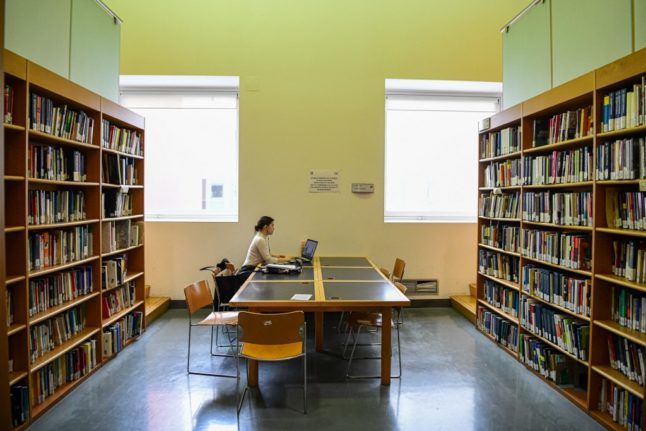As delays to Italy’s residency permit renewal process continue, international students in Venice are urging Italian authorities to speed up the process with a petition on Change.org which has so far attracted around 500 signatures.
Architecture student Zahra Pirayesh, 26, started the online petition, titled ‘Accelerate the Issuance of Permesso di Soggiorno for International Students of Venice’, in November.
She says a large number of international students in Venice and elsewhere are facing a range of problems caused by long delays to the permit renewal process.
“I’m talking with international students from China, Russia, Turkey, South America. And all of us have the same issue,” Zahra, from Iran, tells The Local.
“When we apply [for the permit renewal] they will give us an appointment for fingerprints between around six months, or even more than one year later.
“So the problem is that when we receive our card, it has already expired.
“If you’re lucky you have a valid permit for maybe three months.”
It’s an issue many of The Local’s readers will unfortunately be familiar with: whether their permesso di soggiorno (residency permit) was issued for study purposes or any other reason, readers report an increasingly long wait for the initial appointment at the Questura (police headquarters) when renewing their permits.
READ ALSO: How Italy’s residency permit renewal process has become a ‘nightmare’
With an added wait of around two months for the new permit to be released after the appointment, Italy’s international residents have told The Local they are being left without a valid permit for up to 15 months – and are then having to renew it again immediately.
“It impacts our lives,” says Zahra. “For example, when we want to open a bank account. Personally, I need to upload my new permesso, which I don’t have yet. And the bank have said that they’d restrict my account.”
Getting a SIM card is also difficult as many operators need to see a residency permit, she points out.
“Sometimes we have opportunities for work or for academic purposes, to go and travel through Europe. But of course we can’t. Or sometimes, some of the students, when they want to go back to their countries, they cannot come back.”
READ ALSO: ‘I feel trapped’: How long waits for residency permits are affecting people in Italy
One comment underneath the petition says: “Could not open bank account in time to receive MAECI scholarship because of delayed fingerprint interview.”
Another reads: “I couldn’t get my residence card, consequently I cannot even buy a car.”
Others say they have been unable to travel to their home countries due to the delays.
“Our goal is to communicate with the immigration office. So maybe they can accelerate this process, and maybe they can communicate with the universities,” Zahra says, adding that they are still trying to collect more signatures.
The petition calls for an expedited renewals process, clearer communication from the Italian authorities, and an “emergency system” for international students who need to travel home urgently.
Find the petition on Change.org.
With reporting by Jessica Lionnel.




 Please whitelist us to continue reading.
Please whitelist us to continue reading.
Member comments